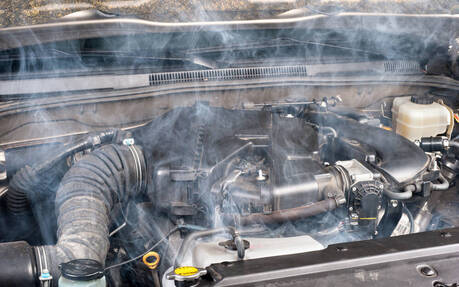5 Ways to Prevent Your Engine From Overheating
A vehicle’s engine can be affected by heat at any time when it operates in difficult conditions, during a heat wave for example. The engine bay can quickly become like an oven, and if you keep driving while your engine is overheating, permanent damage could occur.
In a recent article, we've talked about some precautions to take with your battery in summer. This time, let’s do the same exercise with the engine. Here are five ways to prevent your engine from overheating.
- Also: EcoDiesel Engine Recall for Ram and Jeep
- Also: Twin-Turbo Six-Cylinder Engine Could Land in GM Pickups, SUVs
1. Check the Cooling System
Before hitting the road for a long drive, the best thing to do to prevent overheating is to inspect the cooling system. Ask a technician to check for obstructions or leaks, and to make sure that the cooling fan, water pump and thermostat are all in good working order.
2. Use the Right Equipment
If you want to tow a trailer or a caravan, your vehicle must be properly equipped. First of all, do not exceed its towing capacity, as it would require too much effort from the engine. Also, it’s a good idea to keep a gallon of cooling fluid and another of distilled water (contains less harmful minerals) in your trunk, so you're ready for every eventuality.
3. Be Smart
Just like you would avoid running or other strenuous physical exercise under a blazing sun, you should avoid driving when temperatures are very hot, especially over long distances. Also, to lighten the engine’s load, avoid hard accelerations and try to plan your trips in order to avoid going up and down steep hills.
4. Keep a Watchful Eye
Most people don't pay attention to the engine temperature indicator and often realise too late that the level is dangerously high. So, when driving, you should regularly check the meter, and start worrying if it exceeds the normal range.
5. Relieve Your Engine
If it does overheat and smoke starts to come out of the hood, shut off the A/C and set the ventilation to maximum to move the hot air away from the engine. Pull over where it’s safe to do so, turn off the engine and open the hood to help it cool. Warning: do not remove the radiator cap - it is pressurized and you could be severely burned.
Then you must check if there's a cooling fluid leak or if the level is too low. If needed, fill the tank with your gallon of coolant or water. It’s recommended to wait at least twenty minutes for the engine to cool down before driving again.
